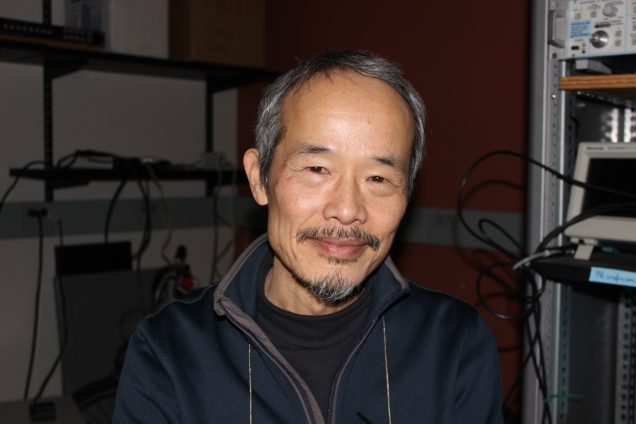FACULTY FEATURE: Jen-Wei Linn

The graininess of a film camera may seem old-fashioned in today’s world. With the digital 4k resolution cameras we have now, why would someone continue to use this much more outdated version? Wouldn’t they want to modernize and take much clearer photos? Dr. Jen-Wei — one of Boston University’s most innovative neurophysiologists — will turn down the digital cameras, as he prefers the originality and freedom of the film camera.
From Taiwan, Dr. Lin’s journey to BU is quite an amazing story. At National Taiwan University, Dr. Lin earned his Bachelor’s degree in Zoology in 1978. After this, Lin served in the Taiwan military service for three years. Following his service, he made the journey to SUNY – Buffalo, where he would complete his Ph.D. in physiology.
“At the time,” Lin said, “Neuroscience was mainly neurophysiology and neuroanatomy. When I began [my studies] in neurophysiology, I burned quite a few things,” Lin chuckles. This was fascinating for Lin as he describes the minute details of studying the traces of neurological processes and channels. Dr. Lin explains that neurophysiology allowed him to make the connections between these processes, which was much more interesting to him than other biological phenomena.
Dr. Lin first entered research in a lab studying a three synapse reflex in goldfish. Specifically, Lin focused on the synaptic transmissions among the multi-neurons along the spine.
“This was very interesting because this was one of the cells in the central nervous system that had multiple synapses,” Lin described. Very uniquely, Lin points out the inhibitory synapses that occur within these cells.
Dr. Lin then transitioned to New York University where he would complete his Ph.D. fellowship at the medical center. Here, Lin studied the giant synapse of both crabs and squids. Lin focused specifically on the depolarization of the neuron of the crab when its muscle would extend or contract for the majority of the year, but waited until summer when “squid season” would begin to work on his squid experiments.
It was after this when Dr. Lin then came to Boston University to begin as a professor. Currently, Dr. Lin teaches BI445: Cellular and Molecular Neurophysiology. This course focuses on the cellular and molecular basis of neural excitability and synaptic transmission. In the course, students work to extrapolate molecular understandings of ion channels to higher brain functions including learning, memory, and sleep. In the course, he incorporates these ideas into studying crayfish to understand the effects of pesticides and antiepileptic drugs.
For Dr. Lin, getting involved in research means being proactive.
“Talk to different professors and other students about what they’re doing. Figure out what you’re interested in, and ask yourself, ‘Is this really what I want to do?’” He advises. Lin says that having “thick skin” is advantageous, as it’s important to “not get lost in the little things you do.” However, Lin explains, that reaching out and making yourself accessible to others is the way to find what you’re passionate about. To put it in his own words, “listen by not being overwhelmed by noise.”
All of this is easy to do at Boston University. Lin calls Boston “a great city,” attracting a large herd of amazing people. Lin suggests taking full advantage of the city, integrating yourself within the communities of not only BU but also the other universities and institutions that surround the city. To become more acquainted with the city, you may follow Dr. Lin’s suggestion and go for runs throughout Boston and Cambridge. Exploring the city and becoming more familiar with what is around you opens you up to Boston’s full potential.
In my conversations with Dr. Lin, his appreciation for the vastness of life was incredibly evident. It was fascinating to hear from this man who works with the most innovative neurophysiology techniques and the most cutting-edge microscopes, but also prefers the use of a grainy film camera in capturing photos of his life. But why?
“Like an artist choosing color between oil or pastel in their paintings, the film camera produces this unique visual of grains,” Lin explains. Lin describes the use of a film camera as “a choice,” that — like neurophysiology — gives him the freedom to put things together himself.
This form of art, both in his photos and his research, possesses an individuality that can be only Dr. Lin’s: a truly fascinating man.
Writer: Trey Moore
Editor: Stephanie Gonzalez